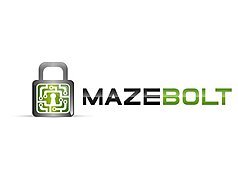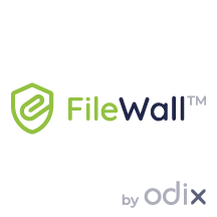Indeed, cyber security software is available on a variety of platforms and devices. The majority of trustworthy cyber security software providers support mobile devices like smartphones and tablets in addition to a variety of operating systems like Windows, Mac, and Linux. This implies that you may use a single software program to secure any device, guaranteeing complete defense against online attacks.
List of 20 Best Cyber Security Software
Akeyless Vault solution for secure and effortless secrets management. Protect all your sensitive information, including credentials, keys, tokens, and API-Keys with our powerful platform. Seamlessly integrate with your DevOps tools and Cloud environm...Read More Akeyless Vault
Incapsula is a premier software that streamlines and enhances complex processes, increasing productivity for users. Its intuitive features and advanced technology make it easy to manage and secure web applications, leading to significant time and ope...Read More Incapsula
NordLayer solution for seamless cybersecurity. Tailor-made for businesses, NordLayer provides secure access to the internet, corporate network, and resources, while ensuring compliance with different work styles. Bid farewell to cyber threats and com...Read More NordLayer
VIPRE Security solution for comprehensive protection of your PC, Mac, and smartphone devices. With advanced technology, VIPRE safeguards your private information and personal data from online threats. The innovative VIPRE Endpoint Security Cloud vers...Read More VIPRE Security
Mazebolt is a technology that offers unparalleled protection against DDoS attacks. Utilizing patented algorithms, Mazebolt proactively identifies and eliminates vulnerabilities, ensuring uninterrupted business operations and safeguarding valuable onl...Read More Mazebolt
Netsparker is a leading web application security solution that effectively identifies vulnerabilities while minimizing false positives. Seamlessly integrating into your software development process, our tool offers comprehensive protection for all yo...Read More Netsparker
Pentera - the premier cybersecurity solution for proactive threat assessment and defense strengthening. With a global reputation trusted by industry experts, Pentera identifies and resolves security vulnerabilities to mitigate risks and bolster prote...Read More Pentera
CyberSmart is a security solution designed by a team of industry experts to address the unique challenges businesses face in meeting information security standards. Our software provides same-day certification for Cyber Essentials and IASME Governanc...Read More CyberSmart
KDMARC is a email analysis and security solution that maximizes your email delivery rate. Empowered with cutting-edge features, KDMARC thoroughly examines email authentication reports and safeguards your domain against email spoofing, guaranteeing se...Read More KDMARC
SiteLock is a website security solution. Our advanced scanning, malware removal, and real-time monitoring features offer unbeatable protection for your online presence. With SiteLock, you can easily detect and eliminate threats, protect sensitive dat...Read More SiteLock
Brinqa is a software designed to streamline and prioritize vulnerability management for infrastructure, cloud, and application security. By unifying security data, automating remediation, and transforming cyber risk into valuable business insights, B...Read More Brinqa
Revenera Compliance Intelligence is a robust software that offers extensive features for analyzing and ensuring compliance. It effectively identifies and prevents unauthorized use of software, resulting in increased revenue and enhanced security. Tru...Read More Revenera Compliance Intelligence
Data Foresight is a data search tool designed to streamline and accelerate your information discovery process. With unmatched capabilities to search across various platforms and file types, including email, Office 365, excel, CSV, PDF, audio, and vid...Read More Data Foresight
FileWall is a cybersecurity solution by odix, renowned for its expertise in Enterprise CDR. Developed with small and medium-sized businesses in mind, FileWall is a native application that safeguards Microsoft Office 365 mailboxes. With its advanced f...Read More FileWall
NetFoundry, the solution for rapid creation of application-specific, zero trust, global transport networks. Our user-friendly open-source software enables effortless integration of high performance and security features. Experience the ease and power...Read More NetFoundry
IonBlade is a web hosting solution for businesses in Pasadena. Easily migrate your website from your current host with our seamless platform, at no additional cost. Our dedicated team offers around-the-clock support and guarantees a 99.9% uptime for...Read More IonBlade
Horangi Web Security Services solution for all your web security needs. Our software offers a comprehensive range of security features, including multi-cloud security, threat detection, vulnerability management, compliance automation, and IAM securit...Read More Horangi Web Security Services
Kogni, a software designed to safeguard your sensitive data across all your business data sources. Its robust security features and constant monitoring make it the go-to choice for businesses of all sizes, from small and medium enterprises to Fortune...Read More Kogni
Ericom Shield - an advanced security solution utilizing isolation technology to protect your business from zero-day threats and phishing attacks. Enjoy secure web browsing and access to applications from unmanaged devices, ensuring ultimate peace of...Read More Ericom Shield
LastPass is a password management solution. Our software includes a state-of-the-art password generator, ensuring your accounts are secured with powerful, uncrackable passwords. Trusted by over 47,000 users, LastPass eliminates the hassle of remember...Read More LastPass
Learn More About Cyber Security Software
- What Is Cyber Security Software?
- What Are The Recent Trends In Cyber Security Software?
- Benefits Of Using Cyber Security Software
- Important Factors To Consider While Purchasing Cyber Security Software?
- What Are The Key Features To Look For In Cyber Security Software?
- Why Do Businesses Need Cyber Security Software?
- How Much Time Is Required To Implement Cyber Security Software?
- What Is The Level Of Customization Available In Cyber Security Software?
- Which Industries can benefit the most from Cyber Security Software?
- Conclusion
What Is Cyber Security Software?
Cyber security software is an essential tool for defending sensitive data and digital assets against malevolent attacks. It is a type of software created especially to stop, identify, and address cyberattacks. Strong cyber security software is more important than ever as the frequency and complexity of cyberthreats keep increasing.
Although this software takes many different forms and has a variety of uses, protecting networks, systems, and data against unwanted access, change, or destruction is its main objective. To find and stop any attacks, it employs a number of strategies, including intrusion detection, firewalls, and encryption. The capacity of cyber security software to continuously scan for any threats is one of its key advantages, offering both individuals and enterprises 24/7 protection.It can identify any questionable activity and notify users instantly so they may take appropriate action.
To keep up with new threats and weaknesses, cyber security software is also regularly updated. This guarantees that users always have the newest protections against online threats. It is a vital tool for keeping a robust and secure online presence because it offers features like data encryption, vulnerability scanning, and safe password management.Examining the particular requirements of your company or personal use is crucial when thinking about investing in cyber security software. While some software offers sophisticated features for enterprise-level protection, others could be better suited for small organizations.
Making an informed choice also requires taking the software provider's reputation, dependability, and customer service into account. Purchasing top-notch cyber security software not only guards against any monetary losses but also preserves customers' trust and confidence. It offers comfort and guarantees a safe online experience, making it an essential investment in the digital age.
What Are The Recent Trends In Cyber Security Software?
Due to the significant rise in cyberthreats and attacks in recent years, it is now essential for both individuals and companies to invest in dependable and cutting-edge cyber security software. The strategies employed by cybercriminals are always changing along with technology, which drives ongoing innovation in the cyber security software industry. We will go over the most recent developments in cyber security software in our buyer's guide, which you should take into account before making a purchase.
1. Integration Of Machine Learning (ML) And Artificial Intelligence (AI): The combination of AI and ML is one of the biggest developments in cyber security software. These technologies improve software's ability to detect and stop attacks by allowing it to learn and adjust to new threats. Cyber security software can spot trends and irregularities in network traffic using AI and ML, reporting questionable activity instantly.
2. Security Solutions: Based in the Cloud Organizations are moving toward cloud-based security solutions as a result of the growing usage of the cloud for data storage and application deployment. These solutions are more affordable, flexible, and scalable than conventional on-premise security software. Additionally, they offer improved defense against distributed denial-of-service (DDoS) attacks, guaranteeing continuous service availability.
3. Security: On the Go As mobility has increased, so too have the attacks that target mobile devices. Cyber security software needs to have strong mobile security capabilities since more corporate operations and transactions are being carried out via mobile devices. This covers defense against phishing scams, malware, data breaches, and other threats.
4. Architecture Of Zero Trust: As a proactive strategy for cyber security, zero trust architecture is becoming more and more well-liked. It continuously checks people and devices before allowing access to resources, assuming that no user, device, or network can be trusted. This method enhances data security and reduces the possibility of insider threats.
5. Analytics Of User Behavior (UBA): A technique called user behavior analytics can spot anomalies in user behavior, like illegitimate access or odd activities. UBA assists companies in identifying and mitigating possible risks before they inflict substantial harm by evaluating data from various sources and highlighting questionable conduct.
6. ATP, Or Advanced Threat Protection: ATP is an advanced security solution that surpasses the capabilities of conventional antivirus software. It detects and eliminates even the most intricate cyberthreats using cutting-edge methods like sandboxing and machine learning. Organizations can successfully safeguard their systems and data and keep ahead of emerging threats with ATP.
Benefits Of Using Cyber Security Software
Due to the growing prevalence of cyber security risks, protecting sensitive data is crucial for both individuals and enterprises. Purchasing cyber security software is among the best approaches to achieve this goal. There are many advantages to this kind of software that can greatly increase your online security. We will examine the main advantages of utilizing cyber security software in this buyer's guide.
1. Defense Against Online Threats: Protecting your devices and private information from online threats is the primary goal of cyber security software. Having trustworthy software that can identify and stop ransomware, malware, and other cyberthreats is essential given their increasing prevalence. Cyber security software protects your personal and commercial data by identifying and blocking possible threats using sophisticated algorithms and threat intelligence databases.
2. Frequent Patches And Updates: In order to stay ahead of the continuously changing cyber dangers, cyber security software is updated on a regular basis. This implies that you may relax knowing that your program has the newest security features to shield your gadgets from the most recent attacks. Your device can be open to attacks that take advantage of holes in its security system if it isn't updated properly.
3. Multiple Layers Of Defense: The fact that cyber security software offers multi-layered protection for your devices and data is one of its many important advantages. This implies that several more levels are in place to stop the assault from succeeding even if one layer is compromised. Because of this multifaceted strategy, thieves find it very difficult to infiltrate your device and obtain your data.
4. Monitoring In Real Time: Real-time device, network, and internet activity monitoring is possible with cyber security software. This implies that any malevolent or questionable action is promptly identified and stopped. By taking a proactive stance, you can stop assaults from happening and feel secure knowing that your private data is constantly being watched.
5. Adjustable Parameters: The majority of cyber security software lets users alter its settings to suit their own requirements and tastes. This implies that you have the freedom to decide which networks and devices to safeguard as well as the degree of security you need. This adaptability guarantees that the program satisfies your particular security requirements and offers you the finest defense available.
6. Makes Security Management Easier: It can be overwhelming and time-consuming to maintain and update several security programs for different devices. Cyber security software makes managing your security more effective and convenient by combining all of your security requirements into a single, centralized solution. This guarantees that all of your devices are sufficiently protected while saving you time and money.
Important Factors To Consider While Purchasing Cyber Security Software?
Purchasing the appropriate cyber security software is essential for safeguarding your company's network and sensitive data from online attacks. However, selecting the finest alternative for your particular needs might be difficult due to the abundance of possibilities accessible in the market. Here are some crucial elements to take into account while buying cyber security software to streamline the process:
1. Recognize Your Needs: It's critical to comprehend the unique cyber security requirements of your company before you begin looking into various choices. Do you require a more complete network solution or just rudimentary computer protection? You can select the best software by reducing your selections and having a clear grasp of your needs.
2. Capabilities For Threat Detection And Prevention: Strong threat detection and prevention features are essential for any good cyber security program. Potential cyberattacks like malware, ransomware, and phishing attempts should be proactively detected and prevented by it.
3. User-Friendly Interface: The program ought to have an easy-to-use interface. Without requiring in-depth training, this will make it simpler for your team to navigate and operate the product efficiently.
4. Compatibility: Verify that the program works with your current infrastructure and systems before making a purchase. Purchasing software that is incompatible with the configuration of your company is not something you want to do.
5. Customer Service And Updates: Because cyberthreats are ever-changing, it's essential to have software that is updated frequently in order to keep ahead of the curve. The software provider should also provide trustworthy customer service in case you run into any problems or have any questions.
6. Scalability: Your company's demand for cyber security will increase as it expands. Thus, it's critical to think about software that can develop and change to meet the evolving needs of your company.
7. Budget: When buying any software, price is an important consideration. But don't make the mistake of choosing a less expensive choice at the expense of quality. Purchasing high-quality cyber security software is essential for safeguarding critical information within your company. You can choose a cyber security program that suits the particular requirements of your company by taking these elements into account. Keep in mind that protecting your company's data and network should be your first priority. Investing in the appropriate software will give you the defense you need against online attacks.
What Are The Key Features To Look For In Cyber Security Software?
As the frequency and severity of cyberattacks continue to increase, cyber security has emerged as a critical concern for companies of all kinds. Purchasing trustworthy cyber security software is crucial since private and sensitive data are at risk. But picking the best solution can be difficult given the wide range of options on the market. These are the essential characteristics of cyber security software to consider in order to make an informed choice.
1. Advanced Threat Detection And Prevention: Real-time cyber threat detection and prevention is the main purpose of cyber security software. Seek out software that employs cutting-edge methods like artificial intelligence and machine learning to swiftly and effectively detect and address changing threats.
2. Multi-Layer Protection: A variety of cyberattacks may target your data, devices, and network. To cover all possible entry points and successfully reduce risks, a strong cyber security program should offer multi-layer protection, including firewall, anti-virus, anti-spyware, and anti-phishing software.
3. Centralized Management: It might be difficult and time-consuming to manage cyber security software across several devices. To simplify security operations, look for software that provides centralized management, which enables you to monitor and manage all networks and devices from a single dashboard.
4. Real-Time Monitoring And Reporting: Being able to see your network and security operations in real time is essential. Seek out software that offers ongoing surveillance and notifies users of any questionable activities. Additionally, it must to produce thorough reports for analysis and legal compliance.
5. Frequent Updates And updates: Since hackers are always coming up with new ways to get into systems and steal data, it's critical to have software that is updated frequently with the newest security patches and updates. To keep your system safe from new dangers, look for a vendor that provides regular updates and upgrades.
6. User-Friendly Interface: Despite the seriousness of cyber security, the software should have an intuitive interface that is simple for non-technical users to use and navigate. In order to be flexible enough to meet the unique requirements of your company, it should also have features like automation and customization choices.
7. Flexible Deployment Alternatives: Since every company has different infrastructure and requirements, it is critical to select software that provides a range of deployment alternatives. Select a solution that fits the needs and budget of your company, whether it is cloud-based, on-premise, or hybrid.
Why Do Businesses Need Cyber Security Software?
Businesses must have enough protection in place since cyberattacks have grown more frequent and sophisticated in the current digital era. Cybersecurity software is made to guard against theft, damage, and illegal access to networks, systems, and sensitive data. Cyber threats may target any business, regardless of size, and having the appropriate tools in place can be the difference between a little nuisance and a catastrophic data loss. The following are the main justifications for why companies want cyber security software:
1. Protection Against Cyber Attacks: To protect against ransomware, phishing, viruses, and other cyberattacks, cyber security software employs cutting-edge technology like firewalls, encryption, and anti-malware. It serves as a layer of defense to keep cybercriminals at bay and stop illegal access to private data.
2. Regulation Compliance: Businesses are now required by law to secure their data due to the emergence of data privacy and protection laws such as the CCPA and GDPR. Heavy fines and harm to the company's reputation may follow noncompliance with these rules. Businesses can meet compliance standards and provide the highest level of protection for sensitive data by implementing cyber security software.
3. Protection For Remote Workers: As remote work becomes more popular, companies must make sure that their data is safe even when accessed from outside the company's network. Remote access protection provided by cyber security software enables workers to operate from any location without jeopardizing the security of the business.
4. Preventing Data Loss: Features in cyber security software enable companies to backup and restore data in the event of a system failure or cyberattack. This minimizes downtime and maximizes productivity by guaranteeing that important data is not lost and can be promptly recovered.
5. Better Business Continuity: A cyberattack can cause a company's operations to be disrupted, resulting in financial loss and reputational harm. By lowering the danger of cyberattacks, cyber security software serves as insurance, enabling companies to continue operating normally even in the case of an attack.
How Much Time Is Required To Implement Cyber Security Software?
The complexity of the system, the size of the company, and the particular demands and requirements are some of the variables that can affect how long it takes to develop cyber security software. Understanding the timetable and resources needed for a successful deployment is crucial for buyers. The implementation procedure can take a few weeks to several months on average.
The degree of integration and customization required for your company's current systems and procedures will also affect this timeline. It is important to remember that hastening the implementation process may result in mistakes and vulnerabilities that could pose a threat to the system. To identify the unique security issues your company confronts, a comprehensive requirements assessment is the first stage in the implementation process.
This stage guarantees that the software is customized to meet the particular needs of your company, maximizing its efficacy. The program can then be installed and configured after the assessment is finished. Installing the software on all systems and devices including desktop computers, servers, and mobile devices is part of this procedure.
It also entails setting up permissions and settings for every user and device, making sure the program runs smoothly inside your company. Another essential step in the implementation phase is training. To get the most out of the program, your staff needs to know how to utilize it properly. Training could take a few days or many hours, depending on how complicated the system is.
Testing and monitoring are the last steps once the software has been deployed and setup. This stage is essential because it makes it possible to spot any possible problems and confirm that the software is operating as intended. The software is prepared for full deployment after testing is finished.
What Is The Level Of Customization Available In Cyber Security Software?
The degree of customization that a cyber security program offers is an important consideration. This speaks to the software's capacity to adjust to the unique demands and specifications of a company or organization. Since every firm has varied security requirements, a one-size-fits-all strategy might not work. Therefore, it's critical to find software that offers a great degree of customization to satisfy your particular requirements.
Configurable security policies and settings, adaptable reporting and analytics, and compatibility with current tools and systems are some important customization features to watch out for. It will be simpler to adapt software to your unique security requirements if it is more adaptable and adjustable. The software's scalability is an additional factor to take into account.
Your security requirements will change and expand with your company. It should be possible for the software to scale and adjust as needed. This could involve handling more data, modifying security settings, and adding or removing features. Additionally, a software that can be easily customized should have an intuitive user interface.
Drag-and-drop capabilities, user-friendly menus and settings, and the capacity to store and reuse unique configurations are a few examples of this. It's crucial to remember that a high degree of personalization could cost more. Nevertheless, spending money on software that can be customized to meet your unique requirements might improve security and eventually save your company from possible data breaches and cyberattacks.
When assessing various possibilities, take into account the degree of customization provided and balance it against your financial constraints and operational needs. In conclusion, be sure to evaluate the degree of customisation offered by the cyber security software you are searching for. For the security requirements of your company, a highly configurable program might offer a more specialized and efficient solution. Choose software that balances cost, functionality, and customization by keeping in mind the important factors listed above.
Which Industries can benefit the most from Cyber Security Software?
Any organization, regardless of size or industry, should invest in cyber security software. Protecting sensitive data and networks has become a primary responsibility for enterprises worldwide due to the growing sophistication and frequency of cyberattacks. However, some companies might gain a lot from putting strong cyber security software in place because they are more susceptible to cyberattacks.
1. Finance & Banking: Financial firms deal with a lot of sensitive data, such as their customers' financial and personal information. They are therefore a popular target for online criminals. They can protect their clients' data, stop fraud, and guarantee regulatory compliance with cyber security software.
2. Healthcare: To keep and maintain patient records, the healthcare sector heavily relies on digital systems and technology. Because they include private information like medical histories and personal information, these records are a prime target for cyberattacks. Healthcare companies can avoid data breaches and safeguard patient privacy by implementing cyber security software.
3. Government Agencies: A lot of sensitive data, including citizen and classified information, is kept by government agencies. These organizations are susceptible to cyberattacks since hackers frequently target them. Government organizations can avoid data breaches, preserve national security, and guarantee the protection of people' data by putting cyber security software into place.
4. Energy And Utilities: As IoT devices and smart grids are integrated, the energy and utilities industry is becoming more and more digital. Because of the increased opportunities for hackers to exploit this connectivity, cyber security is essential for this sector. Energy and utility companies may safeguard their vital infrastructure and avoid service interruptions with the aid of cyber security software.
5. Retail And E-commerce: These industries deal with a lot of sensitive data, such as the financial and personal details of their clients. Because of this, they are a prime target for cyberattacks, which can cause serious financial losses as well as harm to their brand. These companies may protect their online transactions and client data by putting cyber security software into place.
6. Education: A lot of sensitive data, such as student records, financial data, and research data, are handled by the education sector. The safety and privacy of students, employees, and teachers can be guaranteed by using cybersecurity software to shield this data from illegal access and online dangers.
Conclusion
In conclusion, in the current digital environment, selecting the appropriate cyber security software for your company is essential. It is crucial to thoroughly assess your requirements and needs in addition to the features and functionalities of various software choices. Furthermore, it is important to take into account budgetary restrictions, security requirements and laws, and the software provider's support and updates.
To find any potential weaknesses in your systems, it is advised that you, as the buyer, begin with a comprehensive risk assessment. This will assist you in deciding which features and protection level are necessary in a cyber security program. Additionally, picking a trustworthy software vendor with a solid track record in the field is crucial.
By doing this, you can be confident that you'll get timely assistance and frequent updates to keep up with any dangers. Furthermore, spending money on staff education and training on appropriate security procedures can improve the efficacy of your selected software and overall cyber security plan.
In conclusion, you can make an informed choice that reduces potential dangers and offers the required protection for the sensitive data of your company by carefully assessing your needs and taking into account every feature of a cyber security program. Because the threat landscape is always changing, don't forget to examine and update your software on a frequent basis. We appreciate you taking the time to read this buyer's guide, and we hope your quest for the ideal cyber security program is fruitful.
Cyber Security Software FAQ's
Can Cyber Security Software Be Accessed Across Multiple Devices And Platforms?
Is Cyber Security Software Future-Proof |And Adaptable To Emerging Technologies Like Ai, Blockchain or Iot?
Indeed, in order to stay up with new technologies like blockchain, artificial intelligence, and the Internet of Things, cyber security software is always changing. Since cybercriminals are also using these technologies, it is essential for cyber security software to advance and adapt.
To improve attack detection, prevention, and response capabilities, numerous cyber security firms are incorporating these technologies into their software. This guarantees that their software is resilient to future developments and may change to meet the evolving needs of cybercriminals.
Is There A Free Trial Offered To Assess Cyber Security Software Before Committing?
Indeed, a lot of companies that provide cyber security software give prospective buyers the opportunity to try their products out for free before deciding to buy. This enables companies to evaluate the software's features and ascertain whether it satisfies their unique demands.Before purchasing the software for long-term usage, it is crucial to take advantage of these samples to make sure it is effective and easy to use.
Does Cyber Security Software Offer Data Security Features And Meet Regulatory Compliance Standards?
Indeed, data security features are provided by cyber security software to shield private data from online dangers like hacking and data breaches. By putting in place the required controls and procedures to guard against data loss and guarantee data privacy,
It also assists enterprises in meeting regulatory compliance criteria. This covers compliance laws including PCI-DSS, GDPR, and HIPAA. Software for cyber security offers a complete solution for data security and compliance.
Can Cyber Security Software Integrate Seamlessly with Existing Tools And Platforms?
Indeed, the majority of cyber security software is made to work in unison with current platforms and technologies. This makes it possible for a more seamless integration and transition into your existing systems. Cyber security software, whether it is a stand-alone application or a collection of tools, is simple to incorporate into your current infrastructure to offer improved protection without interfering with your daily business activities.
You can make sure that your cyber security measures are completely integrated and functioning effectively with your current technology by choosing from a variety of compatibility options.






















